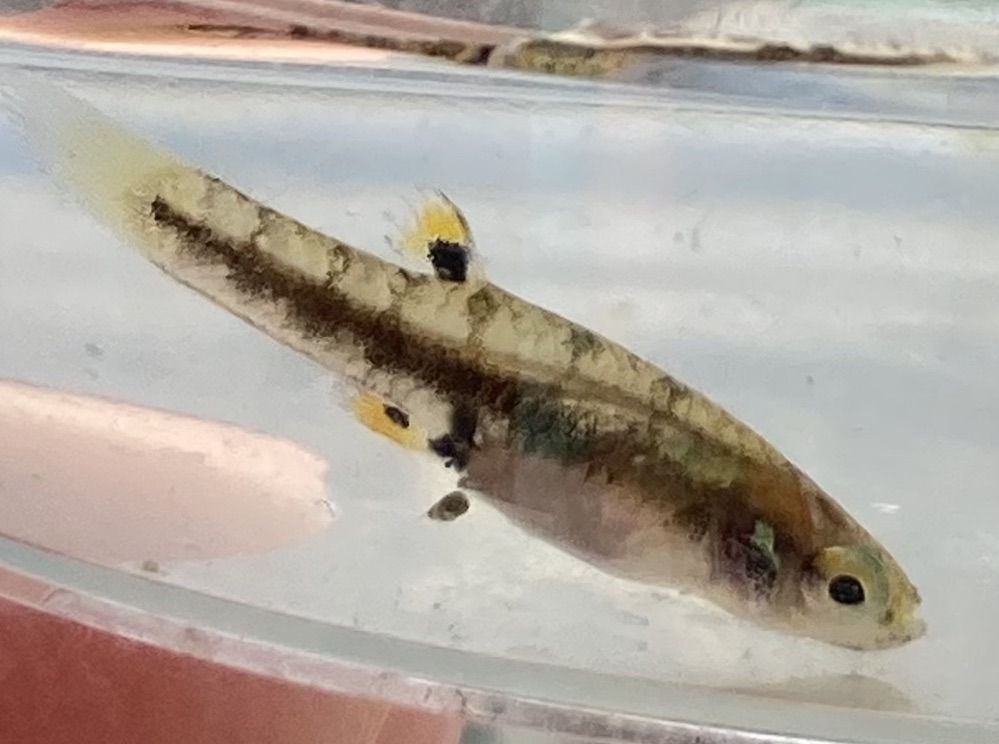UROP Research Mentor Project Submission Portal: Submission #526
Submission information
Submission Number: 526
Submission ID: 8901
Submission UUID: b10f3e8e-fec1-4744-b829-8f6b1891ce67
Submission URI: /urop-research-mentor-project-submission-portal
Submission Update: /urop-research-mentor-project-submission-portal?token=eSyt6cIv70smQLTzydHaONuI032w79zEvMBuBlyv-P8
Created: Mon, 08/21/2023 - 11:45 AM
Completed: Mon, 08/21/2023 - 12:00 PM
Changed: Wed, 09/27/2023 - 01:50 PM
Remote IP address: 144.174.212.115
Submitted by: Anonymous
Language: English
Is draft: No
Webform: UROP Project Proposal Portal
Submitted to: UROP Research Mentor Project Submission Portal
Research Mentor Information
Matthew Schumm
he/him
{Empty}
Graduate Student
{Empty}
{Empty}
Arts and Sciences
Biological Science

Additional Research Mentor(s)
Overall Project Details
Interacting Effects of Food Variability and Fishing Mortality on Fish Populations and Traits
Biology, ecology, fish, statistics, food
No
2
Biology, computational biology, statistics, environmental science, food and nutrition sciences
At least partly off of FSU Main Campus – 2606 Mission Road, Tallahassee
No, there is a public transportation option (Osceola and Azalea buses)
In-person
7 hrs.
Flexible schedule (Combination of business and outside of business. TBD between student and research mentor.)
We are studying how fish populations change when individuals are removed due to harvest, and how this might depend on the amount of food/prey available to the fish. When fish are removed due to harvest, the fish remaining are often (depending on the type of harvest) younger and smaller, but there is sometimes more food and space left over for fish remaining and they may start to grow more quickly. Over multiple generations, the population gene pool may change as fish with certain genetics survive and breed better in the new conditions, and change in fishes’ traits may occur even without genetic change. To study this, we use the very small (the smallest fish in North America!) and fast-growing fish Heterandria formosa as a model organism. We keep lab-bred populations of hundreds of these fish at the FSU Biology Department’s Mission Road greenhouse near campus (off the Osceola bus route)–however, depending on students’ interests, most of the work for a UROP project can be completed on our lab on campus in the King building. At the greenhouse, we are imposing different types of harvest and levels of food on the different populations to observe what happens to the individuals and populations over time. UROP students in the lab this year will have the opportunity to measure differences in length, size, reproduction, and growth of individual fish between these experimental populations, and to study how population size and demographic characteristics are changing.
Details of the work to be completed by a UROP student will depend on the student’s major and interests, but will include care and manipulation of Heterandria formosa fish in tanks in the Mission Road biology research facility greenhouses. Other tasks may include measurement of fish growth (potentially using ImageJ software with photo data of fish), monitoring of tank water quality parameters, measurement of gas and nutrient flux and fish energy use with respirometers and/or diet tracing methods, dissection and measurements of fish embryos, weighing dried fish tissue and extracting and weighing fish tissue fat content, extraction of DNA or RNA and sample preparation for possible future sequencing, data visualization and making plots, and development and coding of analytical or simulation models to analyze or extend data. The student will integrate their work into an ongoing long-term multi-generation harvest experiment and design a test of a hypothesis using this existing experiment, potentially around any traits or outcomes that may be affected by simulated harvest and/or food fluctuations.
No skills are required in advance – students will learn necessary animal husbandry, data collection, and data analysis techniques in the course of their work.
We (Matthew and Dan) have worked with several UROP and DIS students before and are eager to provide students with the support needed to gain useful and interesting academic and professional experience in ecological research, and specifically to make sure that students are given regular advice, feedback, and training at every step necessary in order to complete a UROP project. We aim to provide a fun, fulfilling, and safe experience with research that is helpful to our students’ goals.
https://sites.google.com/view/mschumm/research
{Empty}
Yes
Wednesday, Sept 6, 4:30-5pm (https://fsu.zoom.us/j/97895574497)
Thursday, Sept 7, 4:30-5pm (https://fsu.zoom.us/j/97659330359)
Link to recorded presentation: https://fsu.zoom.us/rec/share/q7lc5Z3s9zOvX39iuKoI0gg-mFQtKpn9qCUgpQwGVV1ejNe2GfO-L_vzWl-JnOhU.ZzoAheSn25Z9mJ1k?startTime=1694119159000
Thursday, Sept 7, 4:30-5pm (https://fsu.zoom.us/j/97659330359)
Link to recorded presentation: https://fsu.zoom.us/rec/share/q7lc5Z3s9zOvX39iuKoI0gg-mFQtKpn9qCUgpQwGVV1ejNe2GfO-L_vzWl-JnOhU.ZzoAheSn25Z9mJ1k?startTime=1694119159000
{Empty}
UROP Program Elements
Yes
Yes
Yes
Yes
{Empty}
No
{Empty}
2023

